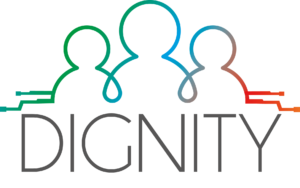The city
The metropolitan area of Brabantstad has 2.5 million inhabitants and is made up of five main cities, one of which is Tilburg, a frontrunner in socially inclusive mobility policy. The government is exploring how mobility solutions can diminish the social exclusion of vulnerable groups in society. Both mobility and social policies are responsible for solving the problem.
The challenge
The city faces various challenges with vulnerable groups, which differ between urban and rural areas. Rural areas are populated mainly by elderly people who may not be familiar with or at ease with the available digital services for the city’s mobility. Within the urban area, transport poverty is an important issue, with access to bicycles or public transport sometimes limited because of high fees.
The vision
Framing the transport poverty gap: mapping vulnerable groups
To effectively design and implement actions that will diminish the transport poverty gap, the city of Tilburg first needs to clarify the nature and size of the challenge. A number of organisations representing vulnerable groups will be actively involved in the initial analysis, so that we gain a clear understanding of their locations, needs, skills and requirements. The outcome of this process will be an online system to map these groups, where they live and multimodal accessibility. This mapping will then be used when design pilots are set up to tackle the existing problems.
Implementing socially inclusive solutions
Then, a process will be set up with end users to design tailor-made solutions, such as one that will help the elderly living in rural areas use public transport, and another that will reduce urban social exclusion by bridging the needs and skills gap of people living in poverty. A circular approach will be used to actively include feedback and enable interventions and adjustments within the pilots.
Nextbike will lead the realisation of a concept for a socially inclusive bikeshare scheme, with special attention given to marginalised groups, including seniors, people with low incomes, the disabled and migrants, for the Tilburg region. It will do this by:
- Following the DIGNITY user-centric approach, liaising with marginalised and vulnerable groups through partnerships with local community organisations, in order to understand, map, and cater to their needs;
- Defining a specific response and approach as part of a bikeshare concept (e.g. strategically located and accessible docking stations; low-cost bikeshare scheme membership; removal of payment barriers through cash payments and freephone numbers; a programme to boost group rides; road skill sessions and city navigation events) that can be used to realise a successful scheme that also fully benefits from digitalization.
Expected impacts
- Insights regarding the needs and locations of excluded groups;
- A regional social inclusion policy strategy;
- Mobility design solutions for elderly and low-income people;
- A socially inclusive bikeshare scheme;
- Better connections between rural areas and the city;
- Improved, sustainable products and services that reduce the digital gap.

Local actors
- City of Tilburg;
- City of ‘s-Hertogenbosch (follower city);
- Regio Hart van Brabant – collaboration network;
- Province of Noord-Brabant (follower);
- Arriva – public transport provider;
- Nextbike GmbH;
- Regiovervoer Midden-Brabant – public transport facilitator;
- Zet – company in social inclusion, participation and innovation;
- Vervoer voor elkaar – NGO mobility for everyone;
- KBO Brabant – NGO elderly people;
- Countourde Twern -NGO welfare organisation;
- Mobycon – inclusiveness research agency for Cycling;
- Feniks – NGO emancipation expert centre;
- Quit500.nl – poverty “glossy”;
- De Toegang Tilburg – social neighbourhood teams;
- Pater Poels – NGO poverty prevention;
- Het Ronde Tafelhuis – multi cultural centre Tilburg;
- The Experiment – Governmental agency for reintegration;
- GGD – the Area Health Authority.

